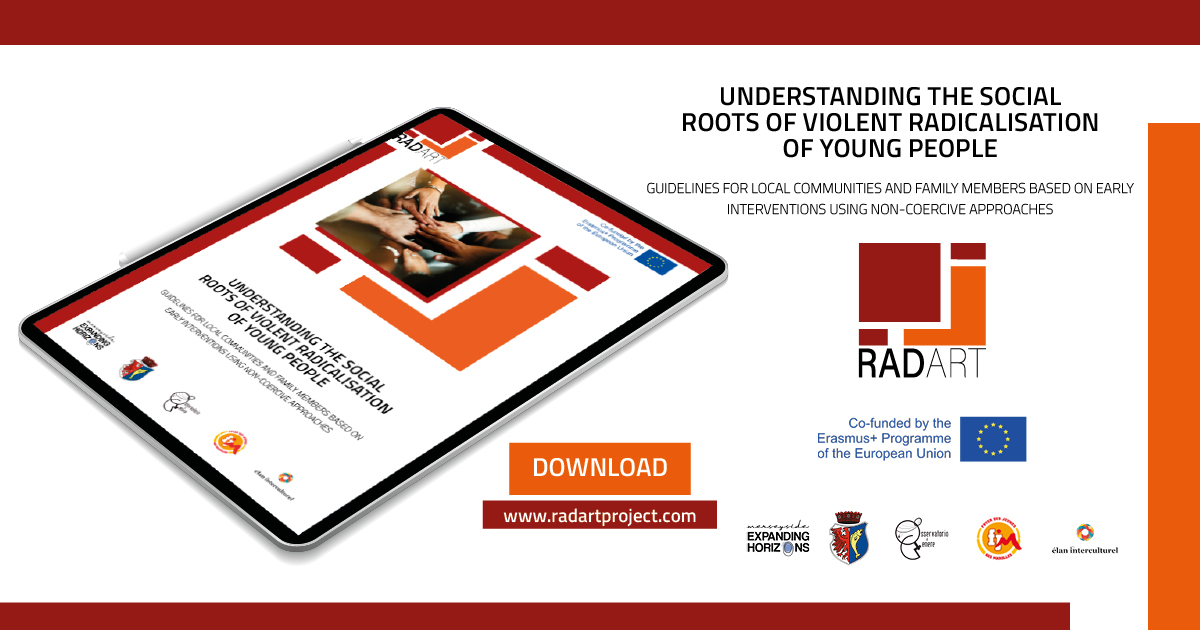After the publication of the EU Manual for Youth Workers, we published the Guidelines for local communities and family members about understanding the social roots of violent radicalisation on young people
These Guidelines, which are based on early interventions using non-coercive approaches,
was created thanks to the cooperation of the RADart partnership: Merseyside Expanding Horizons (UK) in partnership with Town Hall Kostryzn nad Odra (Poland), Osservatorio di Genere (Italy), Le Foyer des Jeunes des Marolles (Belgium), Élan Interculturel (France).
They have been developed within the framework of the RADart project, supported by the European Commission’s Erasmus+ Programme.
Why families and local communities need guidelines
For the past two decades, violent radicalisation has been a rising concern in Europe and beyond. Young people as well as adults may get involved in a violent radicalisation process, but young people are disproportionately affected by it, both as victims and as perpetrators.
In order to better provide support for vulnerable youth, it is necessary for families and members of the community, who are in touch with young people daily and have a unique bond with them, to feel confident in their ability to address the necessarily difficult conversations to be had around radical ideas. These are usually sensitive subjects and issues, but it is important for the community to be able to guide its young people towards a form of resilience which enables them to interact with their environment in a safe and constructive way.
What you can find in the Guidelines
These Guidelines hopes to answer as many questions about violent radicalisation as possible, from its definition and warning signs to where to find help and support in case of concern about a young person, as well as information about what are the legal risks, so that parents, teachers, police officers, educators and even young people themselves feel they understand this sensitive and complex subject enough to be able to guide, advise, debate with, or question any person worried or concerned about a close one.
How to download and use these Guidelines
You can download the Guidelines for families and local communities from the “Resource” section of our website.
All material contained within this Manual falls under a Creative Commons License with attribution, non-commercial, non-derivate, and share alike traits, unless otherwise permitted directly and explicitly by the authors.
Radart Partnership is happy if these Guideliens are useful to you.
If you use this content for your activities, remember to include an appropriate mention of authorship.
Also, please let us know how you used this manual by writing to info@expandinghorizons.co.uk
Next steps?
We are close to the conclusion of RadArt project.
In the next weeks we will publish a summary document containing policy recommendations to foster and promote effective prevention of radicalization through creative methodologies.
Then, on March 24th we will present all the project’s results and outputs in Brussels in the European Parliament.
In addition, each partner will organize a national event to discuss the project’s topics in the different Country involved.
Check our website news for the next updates.






